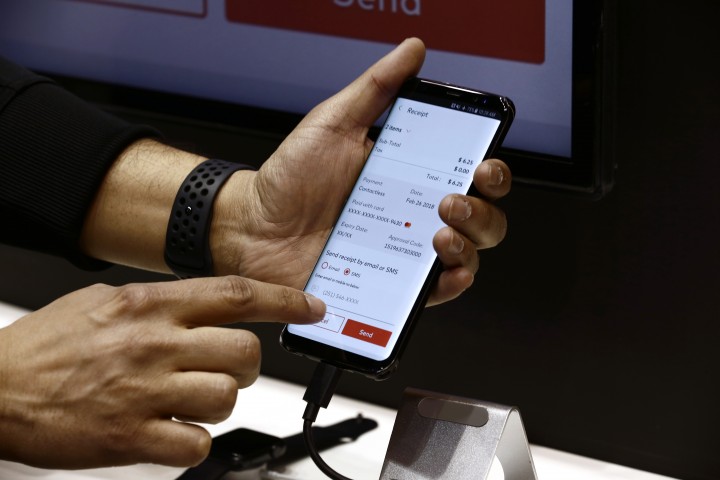As a technology company, we’re at a unique position to partner with the public sector, financial institutions, retail, telcos, SMEs etc. in joint efforts to create sustainable growth for local communities
“Amidst an incredibly challenging time for individuals, communities and businesses, we’re seeing sparks of change brought upon by the growth of digital-savvy consumers and businesses. Cashless has been on a steep rise during the pandemic. We are there for our stakeholders every step of the way and we’ll continue with education and collaboration to make sure each party gets the most out of the digital shopping experience”, said Mastercard`s Country Manager, Jelena Ristić, in an interview for a special supplement of September`s issue of Diplomacy&Commerce magazine.

There’s the impression that the pandemic has influenced us all to boost our knowledge when it comes to paying with cards and using new technologies. What are the trends when it comes to cashless payments in Serbia during this year, taking the corona crisis into consideration?
This impression is certainly a correct one as cashless has been on a steep rise during the pandemic. With COVID-19 imposing constraints on our daily lives, consumers are moving away from cash and opting for contactless and digital payments – and they do not expect to go back. Two notable trends emerge – the first one shows that in store, there is a massive move away from cash with almost seven in 10 consumers globally saying their shift to digital payments will likely be permanent.
When it comes to contactless in Serbia, the limit for paying without PIN was increased to 4,000 RSD as of April 15 as a way to give consumers more ease, speed and peace of mind in a fast changing world. At the same time, merchants are prompting their in-store customers to opt for cashless and even better – contactless in a risk-minimizing effort, all of which is complementary to the cashless recommendations of the World Health Organization. The second trend refers to a sharp increase in e-commerce, and locally, data of eCommerce association of Serbia indicate that food purchases online grew by 200% and food purchases by 100%. The on-going shift from physical to online commerce is also due to the fact that traditional merchants want to capitalize on the potential e-commerce offers in terms of broader scope and greater compatibility of user experience to the current pandemic landscape.
Even before the pandemic, mobile devices were our primary source of communication, information and, increasingly, commerce.
“That’s why, instead of merely supporting physical cards with digital experiences, we’ve been designing digital products from the ground up, with the physical card optional”
On that note, we recently launched Apple Pay service for mobile contactless payments, currently available to Mastercard cardholders from ProCredit and OTP banks, which fits in well with the people’s needs to be able to pay anytime and anywhere, and with the peace of mind that they and their payment data are safe.
Is the crisis now a generator of innovations?
A crisis can definitely be a generator of out-of-box thinking. Amidst an incredibly challenging time for individuals, communities and businesses, we’re seeing sparks of change brought upon by the growth of digital-savvy consumers and businesses. As a technology company, we’re at a unique position to partner with the public sector, financial institutions, retail, telcos, SMEs etc. in joint efforts to create sustainable growth for local communities. I’d like to share one truly inspiring project that comes from the UK – the Leave Nobody in the Dark campaign. Namely, Mastercard and several community organizations formed a coalition to offer immediate support to digitally and financially excluded people in the UK, with a focus on those in poverty hit hardest by the impact of COVID-19. The coalition addresses this challenge by offering practical help, as well as bringing general awareness over the issue. In concrete figures, an estimated 6 million people who have already fallen behind with their household bills due to Corona might benefit from online educations, engagement with free, trusted financial advisors, and practical money help. The coalition aims to support the nation to become financially prepared following the economic effects of COVID-19, as there’s never been a more crucial time to ensure people have access to digital services and resources they need.

What do you think awaits us in 2021, and can modern payment solutions contribute to economic development, especially in our country?
At this stage, no one has a definite answer to that question, but in FinTech, 2021 will demand higher flexibility and higher reliance on technologies. If the current trends in the usage of electronic means of payment continue, we expect further acceleration of cash digitalization by converting everyday persistent low-ticket cash to card, bringing in new digital payment users and digitization of merchants. All stakeholders will be at a win – consumers by enjoying safer, faster and more convenient payments with minimum exposure to the virus; financial institutions will benefit from a more streamlined process, merchants from higher business volumes, and last but not the least, the state from higher tax revenues resulting from recorded financial flows.
E-commerce is developing quickly in Serbia and is introducing new habits. What can we expect from Mastercard in terms of education of all participants in the market, both cardholders and merchants?
Given the circumstantial push toward eCommerce, there is a need to keep educating cardholders on safely navigating online shopping – from paying safely to eliminating the friction of re-entering data enabled by credential-on-file solution, from recognizing credible merchants to knowing their consumer rights. At the same time, merchants who do not currently offer online payments need to introduce them so as not to fall off the shoppers’ radar, but they also need to excel at their end-to-end customer service to stand out from the competition. These are challenges that cardholders and merchants can overcome only if they receive proper, timely and educated support.
“For years now, our technology, insights and global know-how have been changing the local FinTech landscape for better – education and partnerships have been and remain our forte in the process”
Mastercard is strongly aligned to partners throughout the commercial ecosystem – the latest examples of our cooperation include liaison with USAID on the development of the Guide for safe and secure online shopping, upcoming SurfShop intensive online program for 100 merchants we undertake with the Association of young businessmen of Serbia and Shopen start-up, collaboration with the eCommerce Association, e-commerce on-boarding support for existing and new online shops we offer in partnership with OTP bank, and many more. We are there for our stakeholders every step of the way and we’ll continue with education and collaboration to make sure each party gets the most out of the digital shopping experience.